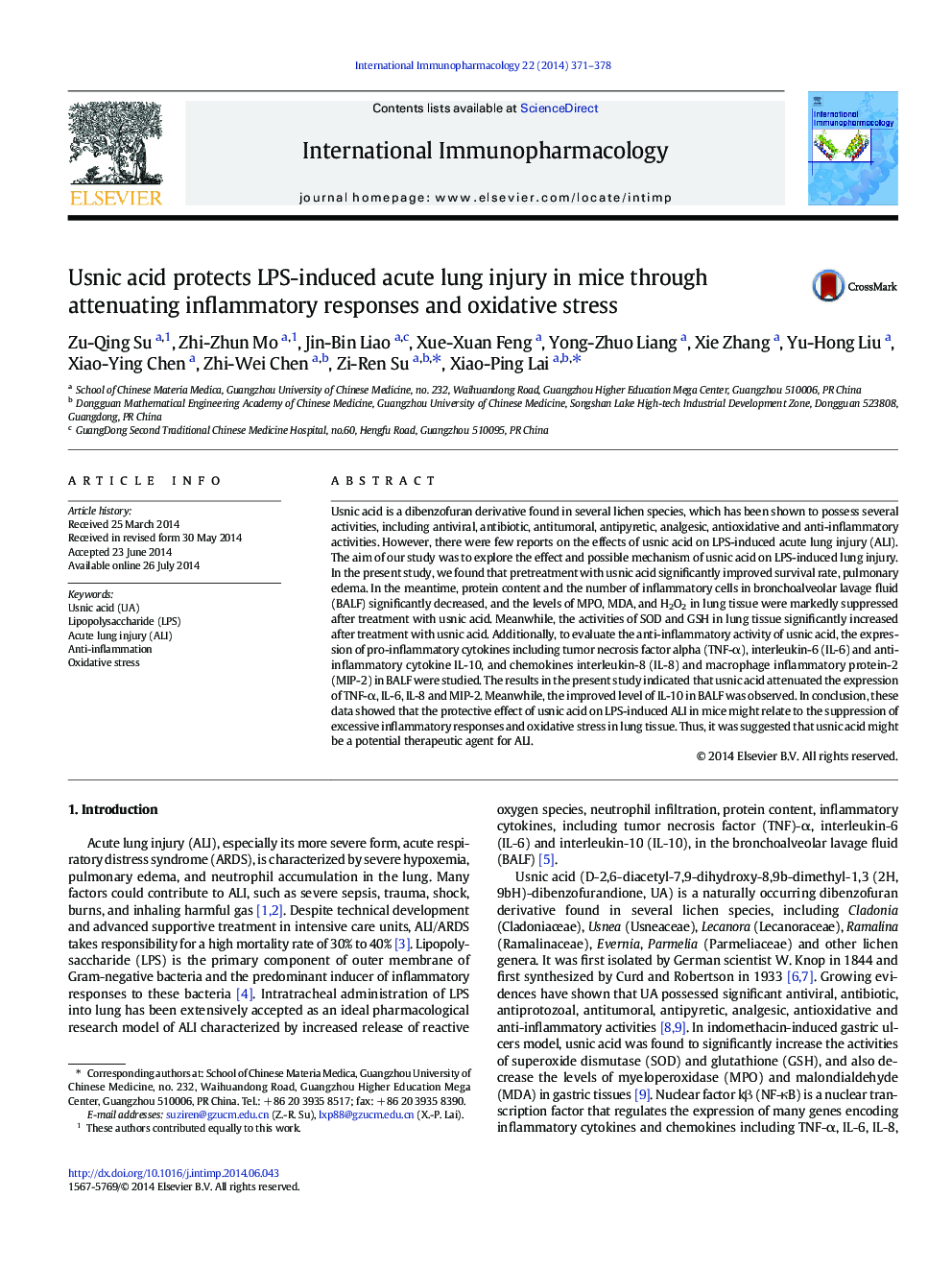| کد مقاله | کد نشریه | سال انتشار | مقاله انگلیسی | نسخه تمام متن |
|---|---|---|---|---|
| 5832707 | 1122607 | 2014 | 8 صفحه PDF | دانلود رایگان |
- Intratracheal instillation of LPS has been accepted as an ideal model of ALI.
- Usnic acid improves survival rate, lung edema and cell counts in BALF.
- Usnic acid suppresses inflammatory responses in mice with ALI.
- Usnic acid improves oxidative stress in mice with ALI.
Usnic acid is a dibenzofuran derivative found in several lichen species, which has been shown to possess several activities, including antiviral, antibiotic, antitumoral, antipyretic, analgesic, antioxidative and anti-inflammatory activities. However, there were few reports on the effects of usnic acid on LPS-induced acute lung injury (ALI). The aim of our study was to explore the effect and possible mechanism of usnic acid on LPS-induced lung injury. In the present study, we found that pretreatment with usnic acid significantly improved survival rate, pulmonary edema. In the meantime, protein content and the number of inflammatory cells in bronchoalveolar lavage fluid (BALF) significantly decreased, and the levels of MPO, MDA, and H2O2 in lung tissue were markedly suppressed after treatment with usnic acid. Meanwhile, the activities of SOD and GSH in lung tissue significantly increased after treatment with usnic acid. Additionally, to evaluate the anti-inflammatory activity of usnic acid, the expression of pro-inflammatory cytokines including tumor necrosis factor alpha (TNF-α), interleukin-6 (IL-6) and anti-inflammatory cytokine IL-10, and chemokines interleukin-8 (IL-8) and macrophage inflammatory protein-2 (MIP-2) in BALF were studied. The results in the present study indicated that usnic acid attenuated the expression of TNF-α, IL-6, IL-8 and MIP-2. Meanwhile, the improved level of IL-10 in BALF was observed. In conclusion, these data showed that the protective effect of usnic acid on LPS-induced ALI in mice might relate to the suppression of excessive inflammatory responses and oxidative stress in lung tissue. Thus, it was suggested that usnic acid might be a potential therapeutic agent for ALI.
Journal: International Immunopharmacology - Volume 22, Issue 2, October 2014, Pages 371-378
